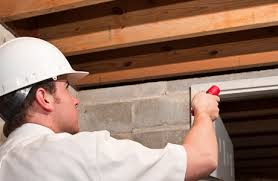 Several years ago over three consecutive Januarys, I received a call from a resident with questions about termite control. I remember this individual, for his accent was very distinct and the question was always the same. He was experiencing a swarm of drywood termites and wondered what he could do for control? Each year, to his dismay, the answer was the same. This is a serious issue that needs to be taken care of and there is nothing we can recommend for the do-it-yourself-er. It is a problem that needs to be handled by a trained professional. When I didn’t hear from him the fourth and fifth years, I wondered whether he finally took the advice and hired a firm which took care of the problem, or if he had done nothing and the house had fallen down around him.
Several years ago over three consecutive Januarys, I received a call from a resident with questions about termite control. I remember this individual, for his accent was very distinct and the question was always the same. He was experiencing a swarm of drywood termites and wondered what he could do for control? Each year, to his dismay, the answer was the same. This is a serious issue that needs to be taken care of and there is nothing we can recommend for the do-it-yourself-er. It is a problem that needs to be handled by a trained professional. When I didn’t hear from him the fourth and fifth years, I wondered whether he finally took the advice and hired a firm which took care of the problem, or if he had done nothing and the house had fallen down around him.
Types of Pest Services
Buying pest services is an expensive proposition and therefore one that should be explored carefully before entering into a contract. Licensing for pest control firms is broken into four categories reflecting the types of pests for which control is offered. These include
- termites and wood destroying organisms,
- general household pest control,
- lawn and ornamental,
- fumigation.
To qualify to take the exam technicians must have three years experience working under an applicator’s license or the combination of appropriate college degree and experience. In addition to passing the examination, the provider must obtain a business license and must have the appropriate insurance including bodily injury $ 250,000 each person and $ 500,000 each occurrence; property damage $ 250,000 each occurrence and $500,000 in the aggregate and combined single-limit coverage $ 500,000 in the aggregate. While not all residents choose to purchase indoor pest control or lawn and shrub services, every homeowner in the interior portions of Florida should have some form of professional protection for subterranean termites. Because of this, the remainder of this article will focus on buying these services.
Things to Remember
Most firms offer free estimates and homeowners are advised to get three of these for comparison. It is important to remember that the lowest price isn’t always the best buy. The old timer’s observation that “Good work ain’t cheap and cheap work ain’t good” deserves much attention in selecting a firm. It may be worthwhile to check with neighbors to see what companies they use for this service and if the work has been satisfactory. Often the sales person who comes initially won’t be the person doing the actual work, so be sure to ask the name of the technician who will. Ask how long they have been doing termite work and what type of on-going training do they get? Request a copy of the firms insurance and check to be sure it is in force. If the company indicates there are termites, ask them to show you evidence of termite damage or insect activity.
The company will prepare a contract proposal. Take time to read this over carefully so you understand what the company will offer, for once endorsed it becomes a legally binding document. There are three levels of contract service you may obtain. The first of these is “Re-treatment and Repair” for which in the event of future damage, the company will retreat the area and repair any damages incurred. A second is “Re-treatment Only” which as stated is re-treatment, but no repairs to damage. The third is “No Warranty/Guarantee” which are contracts for spot treatments and situations where construction defects prevent the pest control company from being able to establish proper barriers, wood treatments or bait/monitoring system placements.
Before You Sign
Never sign a document hastily – termites aren’t going to eat your house in a week. Be sure you know what you are signing. It is important to understand exactly what structure(s) will be included in the treatment; duration of the contract and its renewal terms; indication of what wood-destroying organism will be controlled – i.e. subterranean termites, Formosan subterranean termites, etc. Make sure you know what organisms are not covered as well. The contract should state whether the treatment is preventative (protection only) or corrective (treating an active infestation). If the contract is a Re-treatment and Repair make sure you understand what conditions must occur to require the company to perform re-treatment and/or repair and confirm that the maximum repair amount is disclosed. Finally the maximum price for the contract and the annual renewal amount must be announced. Verify how long the renewal rate will remain the same and if allowed to increase, does the contract/warranty indicate the basis for the renewal increase (maximum percentage, cost of living, inflation, etc.).
A house is an investment that needs protection, for termite pressure is heavy in Florida. Use the guidelines above to select a firm that will install a quality protection plan at a fair price.
 0
0
